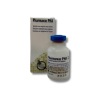Egg Fertility Issues in Racing Pigeons: Causes, Prevention, and Solutions
Breeding high-quality racing pigeons requires careful planning and management. One of the biggest concerns among pigeon breeders is egg fertility issues, which can lead to poor hatch rates, wasted breeding cycles, and frustration. Understanding the causes, implementing prevention strategies, and applying the right solutions can make a significant difference in breeding success.
In this blog post, we will explore common causes of egg fertility problems in pigeons, practical prevention methods, and effective solutions to maximize hatch rates and improve breeding outcomes.
Understanding Egg Fertility in Racing Pigeons
Fertility in pigeons is determined by several factors, including the health of breeding pairs, environmental conditions, diet, and genetic factors. Fertile eggs develop normally, while infertile eggs never hatch because they were either never fertilized or had developmental issues.
Breeders often encounter scenarios where eggs fail to hatch, which can stem from multiple reasons such as poor mating, health conditions, or improper nesting conditions. Identifying these factors early is key to maintaining a successful breeding program.
Common Causes of Egg Fertility Issues
1. Poor Mating and Pair Bonding
For successful fertilization, pigeons must form a strong pair bond. Forced pairings, lack of compatibility, or stress in the loft can result in unsuccessful matings. Some signs of poor bonding include frequent fighting, lack of nest preparation, and failure to copulate properly.
2. Health Problems in Breeding Pairs
Breeding pigeons must be in optimal health for successful reproduction. Health problems such as bacterial infections, canker, respiratory diseases, or internal parasites can reduce fertility in both males and females. Coccidiosis, Trichomoniasis (Canker), and Mycoplasmosis are common infections that impact reproductive health.
3. Nutritional Deficiencies
Proper nutrition is crucial for fertility. A lack of vitamins A, D, E, and calcium can lead to low fertility rates and weak eggshells. Vitamin E, often called the “fertility vitamin,” plays a key role in sperm production and egg viability.
4. Age of Breeding Pigeons
Both young and old pigeons can experience fertility issues. Very young pigeons may not have fully developed reproductive organs, while older pigeons (5+ years) often have reduced sperm count and lower egg viability.
5. Environmental Factors
- Temperature Extremes: Too much heat or cold can affect egg fertility. High temperatures can reduce sperm quality, while cold conditions can lead to failed incubation.
- Improper Lighting: Insufficient daylight hours can disrupt reproductive hormones. Pigeons require at least 12-14 hours of light to maintain peak breeding condition.
- Poor Loft Conditions: Unhygienic and overcrowded lofts can increase stress and disease transmission, negatively impacting fertility.
6. Genetic Weaknesses
Inbreeding can lead to genetic defects, including infertility. Breeding pigeons from unrelated, high-performing bloodlines helps maintain strong reproductive traits.
7. Egg Handling Mistakes
Frequent handling of eggs or disturbing the nesting area too often can result in abandoned or infertile eggs. Pigeons need a calm and stable environment to incubate properly.
Prevention Strategies for Maximizing Fertility
1. Select Healthy, Compatible Breeding Pairs
- Choose pigeons with proven breeding records and strong vitality.
- Avoid pairing pigeons with a history of infertility or genetic weaknesses.
- Allow pigeons to bond naturally before forcing them into a nest box.
2. Provide a Nutrient-Rich Diet
A well-balanced diet plays a major role in fertility. Include the following:
- Vitamin E & Selenium (found in wheat germ oil and green leafy vegetables) to boost sperm quality.
- Calcium & Vitamin D3 for strong eggshells and proper embryo development.
- Protein-rich grains & legumes to support overall reproductive health.
- Ferti-cal Powder is a all in on product that provide all the necessary nutrients needed
3. Regular Health Checks and Disease Prevention
- Administer routine deworming and parasite control.
- Check for respiratory infections, canker, and coccidiosis.
- Use probiotics and immune boosters to keep breeding pairs in top condition.
4. Optimize Loft Conditions
- Maintain clean, well-ventilated lofts to reduce disease risk.
- Keep nesting areas quiet, undisturbed, and free from predators.
- Provide adequate lighting (12-14 hours of daylight or artificial light) to stimulate reproductive hormones.
5. Monitor and Adjust Breeding Practices
- If fertility issues persist, consider rotating breeding pairs to test compatibility.
- Allow pigeons a short rest period after multiple breeding cycles to restore energy levels.
Effective Solutions for Treating Egg Fertility Problems
If you notice ongoing infertility issues, consider the following solutions:
1. Use Fertility Supplements
Several commercial fertility boosters are available, including:
- Vitamin E + Selenium supplements to improve sperm motility and egg viability.
- Brewer’s yeast (rich in B vitamins) to support overall reproductive health.
- Calcium & D3 supplements to strengthen eggshell quality.
- Fertical a well rounded product that suport all the needs for boosting fertility
2. Improve Mating Success with Proper Pairing Techniques
- Introduce pairs gradually in a neutral environment before moving them into a breeding loft.
- Use natural pairing methods instead of forced pairings.
- Ensure both birds are sexually mature and in peak breeding condition.
3. Artificial Insemination (For Valuable Bloodlines)
In cases where a top-performing pigeon has fertility issues, some breeders use artificial insemination to preserve its lineage. This method ensures genetic continuation while bypassing natural fertility barriers.
4. Egg Candling to Check Fertility
Candling eggs after 5-7 days of incubation can help determine if they are fertile. Infertile eggs should be removed to prevent contamination and allow pigeons to re-lay.
Real-World Example: A Racing Champion’s Fertility Turnaround
A pigeon fancier once struggled with low hatch rates in his champion racing pair. After improving the pair’s diet with Vitamin E, switching to a higher-quality grain mix, and ensuring better lighting in the breeding loft, the fertility rate jumped from 30% to over 85% within two breeding cycles. This transformation highlights the importance of fine-tuning breeding conditions for maximum success.
Conclusion
Egg fertility issues in racing pigeons can be frustrating, but with proper management, nutrition, and loft conditions, you can significantly improve hatch rates. Ensuring that breeding pairs are healthy, well-fed, and stress-free is the key to producing strong, high-performing racing pigeons. By following these best practices, pigeon breeders can enjoy successful breeding seasons, stronger offspring, and ultimately, better racing performance.
If you’ve experienced fertility challenges in your loft, try these solutions and watch your hatch rates improve. Keep your pigeons healthy, happy, and breeding successfully!
“Until Next tine Keep Them Healthy And Flying”


